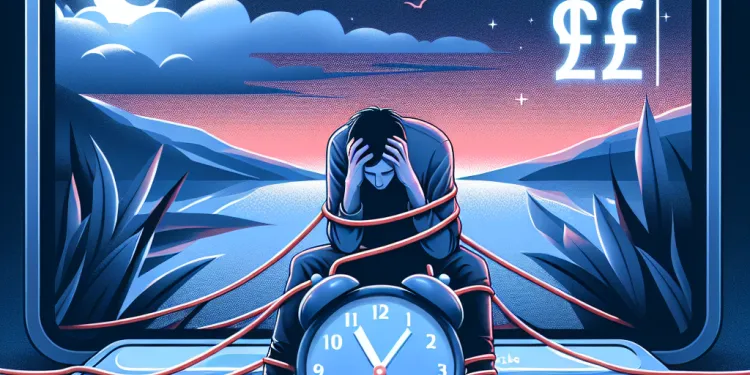
Find Help
More Items From Ergsy search
-
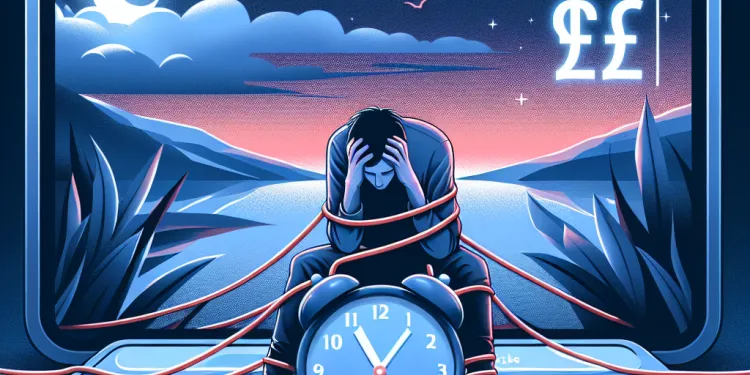
What are some long-term effects of poor sleep quality linked to screen time?
Relevance: 100%
-

Study Shows Link Between Screen Time and Sleep Quality
Relevance: 87%
-
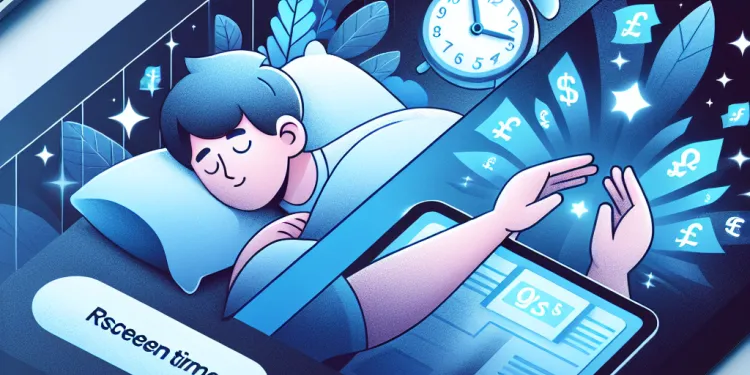
Can reducing screen time improve sleep quality?
Relevance: 85%
-

How does screen time affect sleep quality?
Relevance: 85%
-

What is the main finding of the study linking screen time to sleep quality?
Relevance: 82%
-
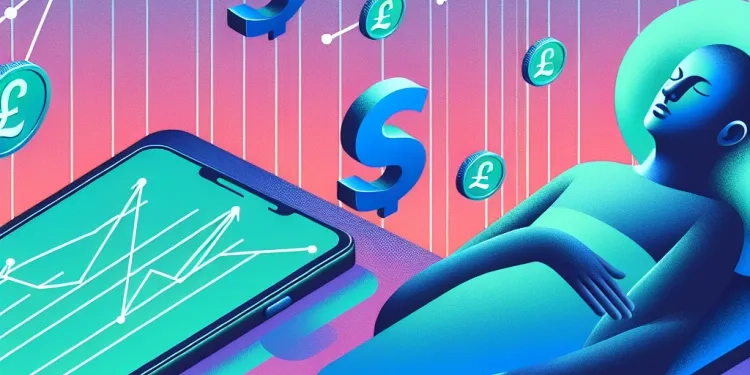
What demographic showed the most significant change in sleep quality due to screen time?
Relevance: 81%
-
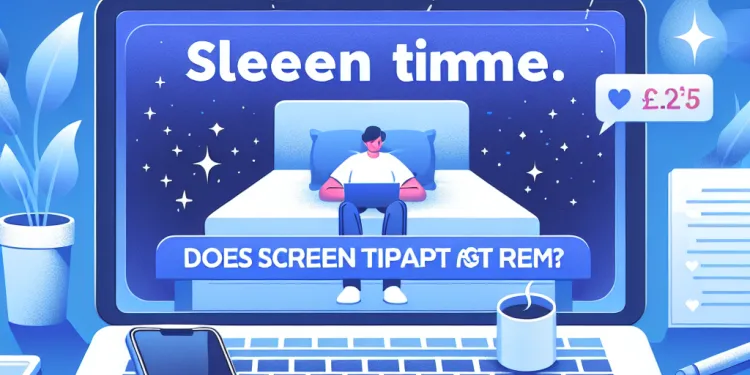
Does screen time impact REM sleep?
Relevance: 77%
-
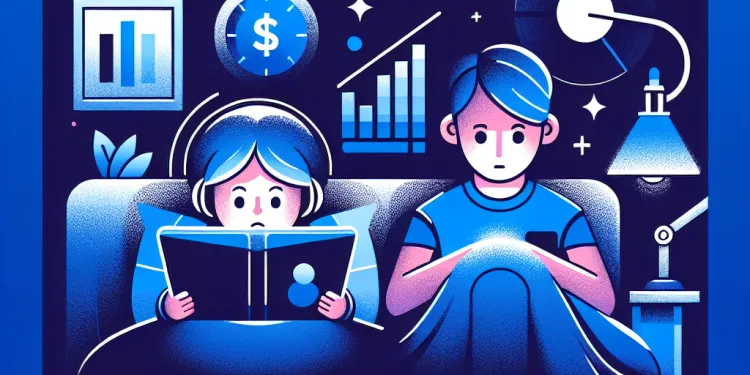
Are children more affected by screen time in relation to sleep than adults?
Relevance: 70%
-

Is blue light from screens a factor in affecting sleep quality?
Relevance: 68%
-

Is there a difference in screen time impact on sleep between weekdays and weekends?
Relevance: 68%
-

Are there any screen time guidelines recommended for improving sleep?
Relevance: 67%
-

Does screen time affect both sleep onset and sleep maintenance?
Relevance: 66%
-

What are some tips for reducing screen time to improve sleep?
Relevance: 66%
-

What is the role of parental monitoring in children's screen time and sleep?
Relevance: 64%
-
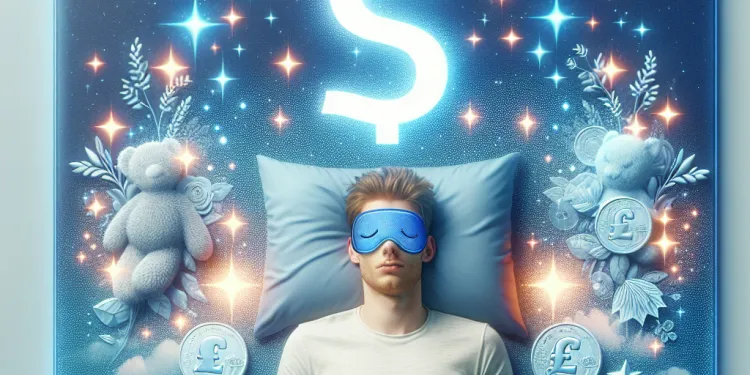
Do mitigation strategies like blue light glasses help improve sleep quality?
Relevance: 57%
-
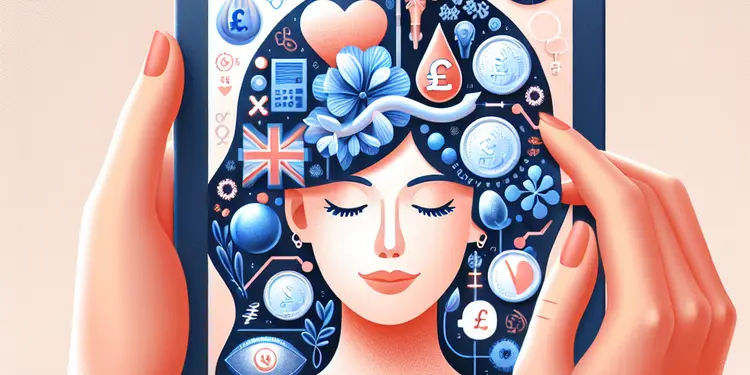
How does sleep quality relate to menopause symptoms?
Relevance: 56%
-

How does screen time before bed specifically affect adolescents?
Relevance: 54%
-

UK Study Links Poor Air Quality to Increased Asthma Cases in Urban Areas
Relevance: 50%
-

Are mosquito window screens effective in the UK?
Relevance: 43%
-

Does ketamine have long-term effects?
Relevance: 43%
-

Are there any long-term effects of gonorrhoea?
Relevance: 43%
-
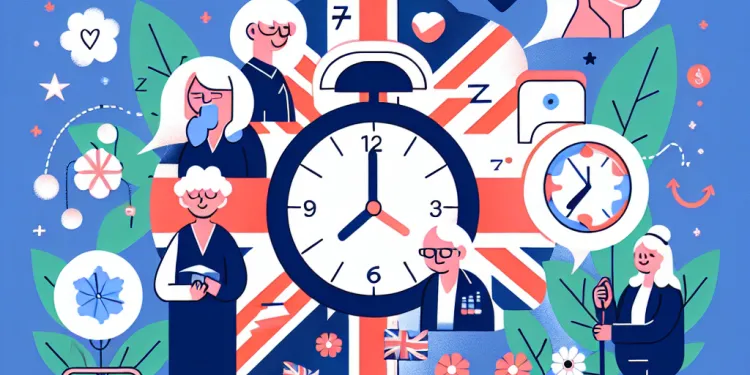
The Importance of Sleep for All Ages
Relevance: 43%
-

Are Mosquito window screens effective?
Relevance: 42%
-

Are there any long-term effects of Chikungunya infection?
Relevance: 42%
-

Are there any long-term effects of using Ozempic?
Relevance: 42%
-

Can whiplash have long-term effects?
Relevance: 42%
-

What are the long-term effects of repeated heatwave exposure?
Relevance: 41%
-

What are the long-term effects of sunburn?
Relevance: 41%
-

Are there any long-term effects of using Botox?
Relevance: 41%
-

What are some signs of poor gut health?
Relevance: 41%
-

Are mosquito screens effective against midges?
Relevance: 40%
-

What are the long-term effects of a heart attack?
Relevance: 40%
-
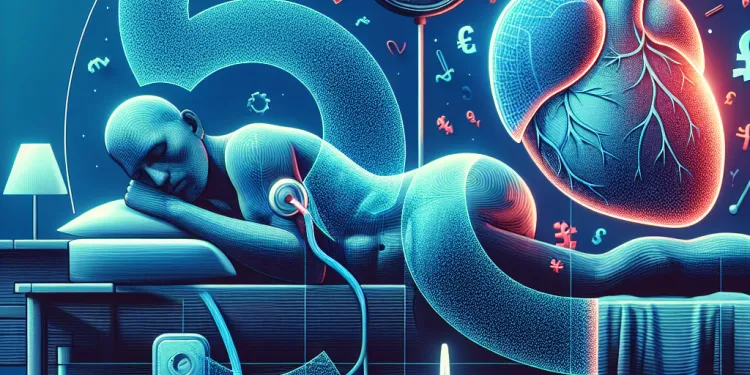
What is complex sleep apnea syndrome?
Relevance: 38%
-
What are the long-term effects of untreated eating disorders?
Relevance: 38%
-

Are there any long-term side effects of the COVID jab?
Relevance: 37%
-

Top Tips to Help You Get a Good Nights Sleep
Relevance: 37%
-

Why is sleep apnea dangerous?
Relevance: 37%
-

What are common symptoms of sleep apnea?
Relevance: 36%
-

Can drink spiking cause long-term health effects?
Relevance: 36%
-

Are there any long-term effects of rice food poisoning?
Relevance: 36%
Introduction
Poor sleep quality is an increasing concern for many, particularly in the UK, where digital screen usage is prevalent. With the rise of devices like smartphones, tablets, and laptops, people are exposed to screens more than ever before. This exposure can significantly impact sleep quality, and there are several long-term effects that individuals should be aware of.
Impact on Mental Health
One of the most significant long-term effects of poor sleep quality linked to screen time is its impact on mental health. Studies have shown that inadequate sleep can lead to increased levels of stress, anxiety, and depression. The correlation between screen time and mental health issues is particularly pronounced among teenagers, who are heavy users of digital devices. Sleep disturbances caused by late-night screen usage can result in mood swings and irritability, further exacerbating mental health problems.
Cognitive Impairment
Lack of quality sleep has been linked to cognitive impairments, such as reduced attention span, poor memory retention, and decreased problem-solving skills. For students and working professionals, these impairments can result in decreased academic and occupational performance. Long-term exposure to screens, especially before bedtime, can disrupt the natural sleep-wake cycle, leading to chronic sleep deprivation and further cognitive decline.
Physical Health Issues
Prolonged poor sleep quality due to excessive screen time can also lead to various physical health problems. Sleep deprivation is associated with an increased risk of cardiovascular diseases, obesity, and diabetes. The lack of restorative sleep can disrupt the body's ability to regulate insulin and maintain a healthy weight. Additionally, poor sleep can weaken the immune system, making individuals more susceptible to illnesses.
Effects on Eye Health
Extended screen time, particularly in the evening, is known to cause digital eye strain. Symptoms include dry eyes, blurred vision, and headaches. Over time, this can lead to more severe eye health issues, which can be compounded by poor sleep quality. Blue light emitted from screens can disrupt the production of melatonin, the hormone responsible for sleep regulation, causing delayed sleep onset and reduced sleep quality.
Disrupted Sleep Patterns
Screen time before bed can interfere with the natural circadian rhythm, leading to disrupted sleep patterns. The blue light from screens can suppress melatonin production, causing difficulty in falling asleep. Over time, this disruption can lead to more serious sleep disorders such as insomnia. Consistent poor sleep can make it challenging to establish a regular sleep schedule, further impacting overall health and well-being.
Conclusion
It is clear that poor sleep quality linked to excessive screen time has numerous long-term effects on health and well-being. Addressing this issue by implementing strategies such as limiting screen use before bedtime, using blue light filters, and promoting good sleep hygiene can help mitigate these effects. Raising awareness about the importance of quality sleep is crucial for improving public health outcomes in the UK.
Introduction
Many people are having trouble sleeping well. This is a big worry, especially in the UK, because lots of people use screens like phones, tablets, and computers. Looking at screens can make it harder to sleep well. There are many effects on our health when we don’t sleep properly.
Impact on Mental Health
Not sleeping well because of screen time can make us feel worse in our minds. If we don't sleep enough, we can feel more stressed, worried, and sad. This happens often with teenagers who use screens a lot. Not sleeping well can make people moody and upset. This can make mental health problems worse.
Cognitive Impairment
When we don’t sleep well, it can be hard to remember things or focus. We might not think as clearly or solve problems easily. This can make it hard for students to get good grades and for workers to do a good job. Using screens a lot, especially before bed, can make it hard to get good sleep, leading to more thinking problems.
Physical Health Issues
Not sleeping well because of too much screen time can make our bodies sick. If we don’t sleep enough, we could have heart problems, gain too much weight, or get diabetes. Not getting good sleep can also make it harder for our bodies to stay healthy and fight off germs.
Effects on Eye Health
Looking at screens too much, especially at night, can hurt our eyes. Our eyes might get dry, and we might get headaches. This can cause more eye problems if we don’t sleep well. Screens give off blue light, which can make it hard to fall asleep because it stops the sleep hormone, melatonin, from working properly.
Disrupted Sleep Patterns
Using screens before bed can mix up our sleep schedule. The blue light from screens can make it hard for us to feel sleepy when we should. This can cause bigger sleep problems, like insomnia. It’s hard to get good sleep when our sleep schedule is not regular.
Conclusion
Too much screen time can make it hard to sleep well and hurt our health. To feel better, we should try to use screens less before going to bed. We can use blue light filters on screens and have good bedtime habits to help us sleep better. It is important to know how important good sleep is for staying healthy.
Frequently Asked Questions
Useful Links
This website offers general information and is not a substitute for professional advice.
Always seek guidance from qualified professionals.
If you have any medical concerns or need urgent help, contact a healthcare professional or emergency services immediately.
Some of this content was generated with AI assistance. We’ve done our best to keep it accurate, helpful, and human-friendly.
- Ergsy carfully checks the information in the videos we provide here.
- Videos shown by Youtube after a video has completed, have NOT been reviewed by ERGSY.
- To view, click the arrow in centre of video.
- Most of the videos you find here will have subtitles and/or closed captions available.
- You may need to turn these on, and choose your preferred language.
- Go to the video you'd like to watch.
- If closed captions (CC) are available, settings will be visible on the bottom right of the video player.
- To turn on Captions, click settings .
- To turn off Captions, click settings again.
More Items From Ergsy search
-

What are some long-term effects of poor sleep quality linked to screen time?
Relevance: 100%
-

Study Shows Link Between Screen Time and Sleep Quality
Relevance: 87%
-

Can reducing screen time improve sleep quality?
Relevance: 85%
-

How does screen time affect sleep quality?
Relevance: 85%
-

What is the main finding of the study linking screen time to sleep quality?
Relevance: 82%
-

What demographic showed the most significant change in sleep quality due to screen time?
Relevance: 81%
-

Does screen time impact REM sleep?
Relevance: 77%
-

Are children more affected by screen time in relation to sleep than adults?
Relevance: 70%
-

Is blue light from screens a factor in affecting sleep quality?
Relevance: 68%
-

Is there a difference in screen time impact on sleep between weekdays and weekends?
Relevance: 68%
-

Are there any screen time guidelines recommended for improving sleep?
Relevance: 67%
-

Does screen time affect both sleep onset and sleep maintenance?
Relevance: 66%
-

What are some tips for reducing screen time to improve sleep?
Relevance: 66%
-

What is the role of parental monitoring in children's screen time and sleep?
Relevance: 64%
-

Do mitigation strategies like blue light glasses help improve sleep quality?
Relevance: 57%
-

How does sleep quality relate to menopause symptoms?
Relevance: 56%
-

How does screen time before bed specifically affect adolescents?
Relevance: 54%
-

UK Study Links Poor Air Quality to Increased Asthma Cases in Urban Areas
Relevance: 50%
-

Are mosquito window screens effective in the UK?
Relevance: 43%
-

Does ketamine have long-term effects?
Relevance: 43%
-

Are there any long-term effects of gonorrhoea?
Relevance: 43%
-

The Importance of Sleep for All Ages
Relevance: 43%
-

Are Mosquito window screens effective?
Relevance: 42%
-

Are there any long-term effects of Chikungunya infection?
Relevance: 42%
-

Are there any long-term effects of using Ozempic?
Relevance: 42%
-

Can whiplash have long-term effects?
Relevance: 42%
-

What are the long-term effects of repeated heatwave exposure?
Relevance: 41%
-

What are the long-term effects of sunburn?
Relevance: 41%
-

Are there any long-term effects of using Botox?
Relevance: 41%
-

What are some signs of poor gut health?
Relevance: 41%
-

Are mosquito screens effective against midges?
Relevance: 40%
-

What are the long-term effects of a heart attack?
Relevance: 40%
-

What is complex sleep apnea syndrome?
Relevance: 38%
-
What are the long-term effects of untreated eating disorders?
Relevance: 38%
-

Are there any long-term side effects of the COVID jab?
Relevance: 37%
-

Top Tips to Help You Get a Good Nights Sleep
Relevance: 37%
-

Why is sleep apnea dangerous?
Relevance: 37%
-

What are common symptoms of sleep apnea?
Relevance: 36%
-

Can drink spiking cause long-term health effects?
Relevance: 36%
-

Are there any long-term effects of rice food poisoning?
Relevance: 36%


